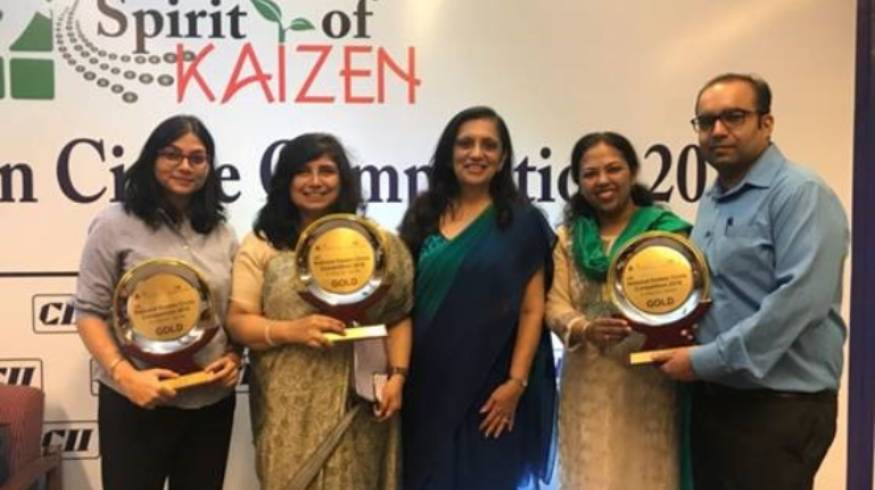
Two years ago, when Google’s AlphaGo computer system beat Ke Jie, the world’s best player of the 2,500-year-old game called Go, the world sat up and took notice of the power of artificial intelligence. Among those who quietly committed to boosting their AI strengths was Iris Software. Industry-wide, peer-level recognition of its AI and related capabilities came with the 2018 Kaizen Awards, bestowed by the Confederation of Indian Industry (CII).
Three of five participating Iris Software teams had won Gold awards in CII’s 2018 Kaizen Competition in the areas of Robotics Process Automation, DevOps and Machine Learning. (Kaizen, a Japanese concept, is a system of continuous improvement in quality, technology, processes, company culture, productivity, safety and leadership.)
The CII honors last year were no mean achievement: Sixty companies participated, presenting 125 case studies. Iris teams won the awards in the categories of Innovative, Reactive and Proactive.
Three phases of process automation
How exactly do Iris’s competencies in process automation, DevOps and machine learning help clients?
Process automation has three phases: from Robotics Desktop Automation to Robotics Process Automation and then on to Intelligent Automation, explains Ritesh Sinha, Chief of DevOps and Robotics Process Automation (RPA) Practice at Iris Software. These involve the creation of software “bots” – short form for ‘robot’ – or applications that perform simple and repetitive tasks faster than what humans could achieve.
In Robotics Desktop Automation, or RDA, the first step is to build software bots that are suitable for any knowledge worker; they are commonly used in call centers or in back offices. “This is because they have highly consistent processes to ensure that customer experience is optimal,” says Sinha. “Consistency is automation’s best friend.”
The next stage is Robotics Process Automation (RPA), which involve complex processes like fetching data from multiple sources or running software robots to process business transactions. Iris has deployed mission-critical projects involving RPA tools at leading financial institutions.
The third stage of Intelligent Process Automation (IPA) is the most complicated, and it actually mimics the human process of decision-making. An example of corporate or institutional use is in investment banking, which involves complex processes and multiple points of interaction with customers.
DevOps and machine learning/AI
In DevOps, the processes closely align software development with dynamic changes in the needs of business operations. Using Agile frameworks such as Continuous Integration and Agile Planning, Iris has developed capabilities that enable business to cater to the market demands by facilitating rapid delivery and fostering collaboration across IT value streams. Such rapid deployment also helps its clients drive down costs, expedites time-to-market for new products or improvements, and reduces risks.
In Machine Learning (ML), the effort is to map or digitise how an intelligent human being would respond in a situation and to replicate it via a machine. Sinha offers a telling example. “If we go to the supermarket for groceries, have you noticed how chips are placed near the sodas? This is because whoever buys a soda is most likely to buy chips,” he says. “These are algorithms which try to map, understand and predict human behaviour in a variety of ways – from pictures posted on Instagram to product reviews on Facebook.”
Contact
Our experts can help you find the right solutions to meet your needs.
Get in touch
